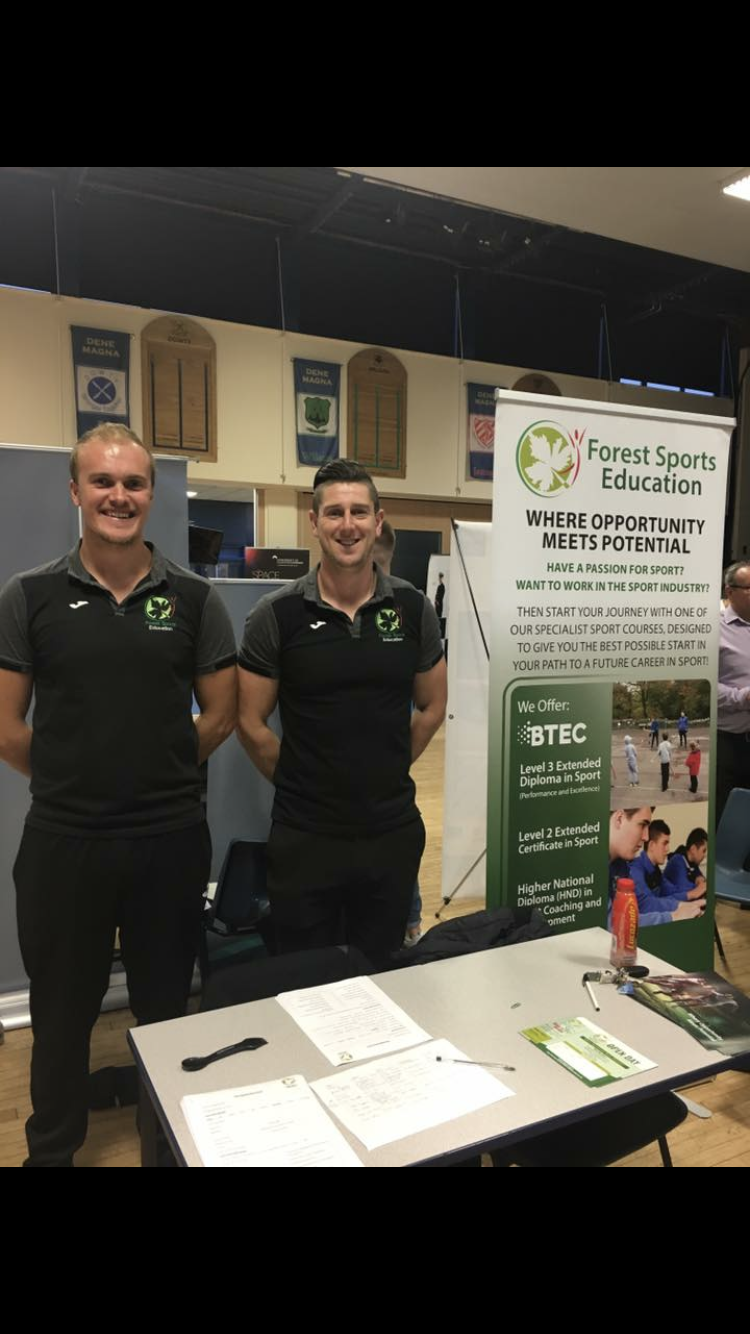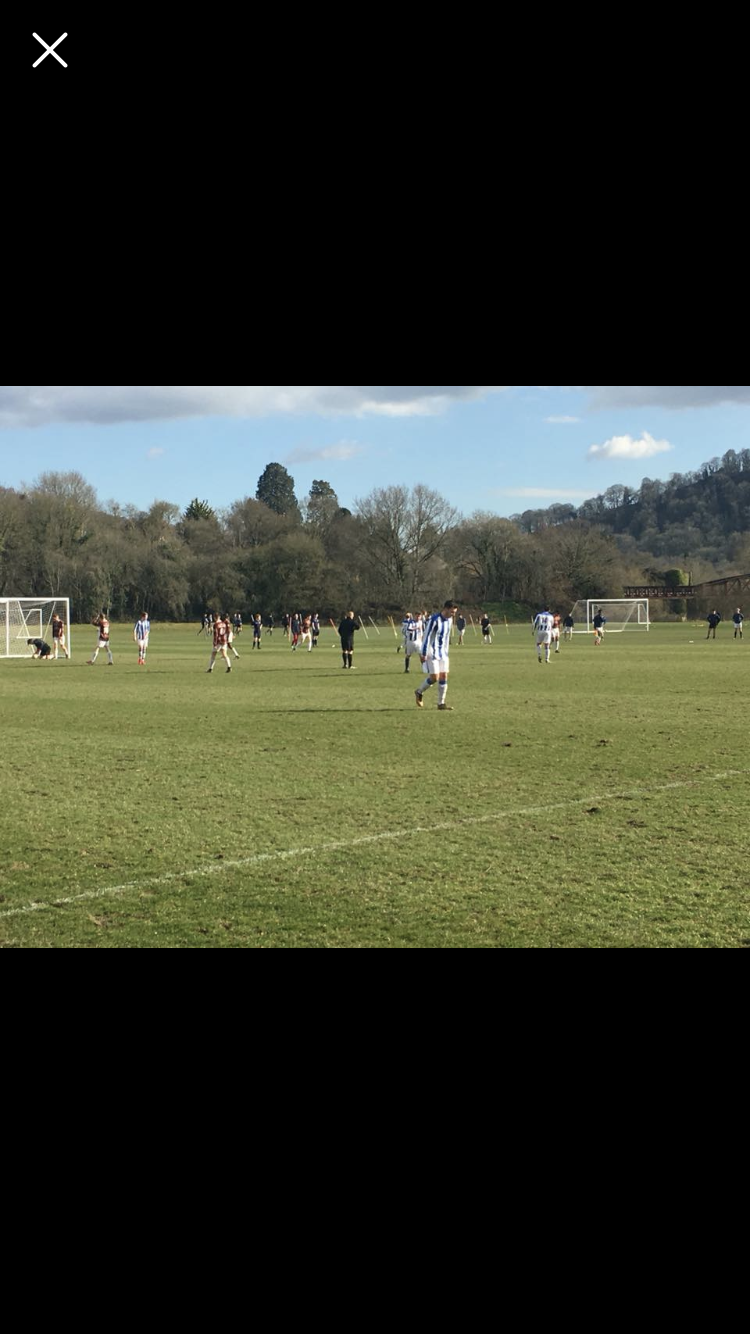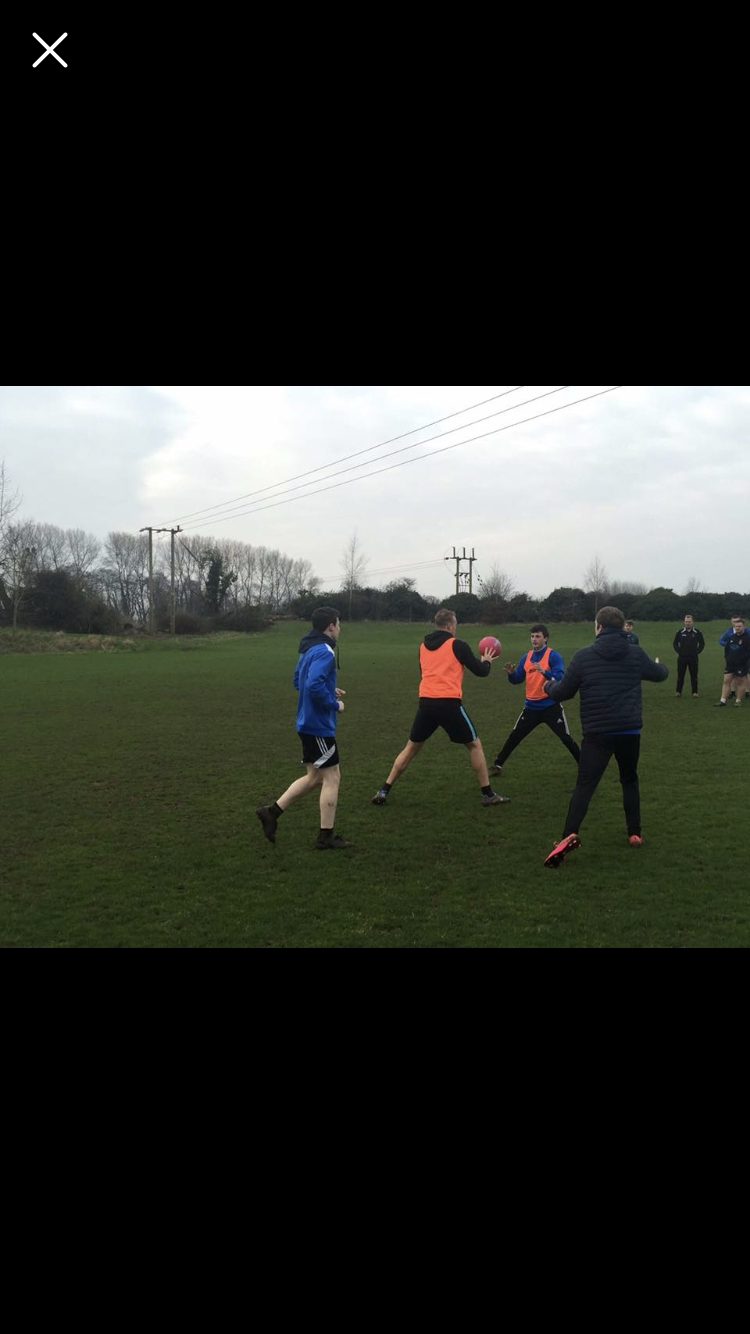COURSES
Football
Other Sports
BTEC Level 3 Extended Diploma in Sport
About the course
Year One
Year Two
BSc Honours Degree in Sports Coaching
About the course
BSc Honours Degree in Sports Coaching (Third Year)
Higher National Certificate in Sport and Exercise Science
Higher National Diploma in Sport and Exercise Science
ProStars Link

Where opportunitymeets potential
Year Two
During your second year, you will study 6 units. More information about these units can be found below:
APPLIED COACHING SKILLS: The main goal of a sports coach is to maximise the performance potential of individuals or teams, enabling athletes to achieve levels of performance that may not have been possible if left to their own endeavours. The role of the coach can be complex and involved, yet exciting and rewarding. At any one time coaches fulfil many different roles, making a valuable contribution to sports in a diverse range of disciplines. In this unit, you will assess participant profiles and needs in order to inform bespoke coaching programmes. You will prepare the wider coaching team and support staff and plan a coaching programme informed by the analysis you have carried out. Important aspects of the programme will include coaching, leadership and feedback, monitoring progress and making relevant adaptations. This unit will help you to progress to employment in the coaching profession. The unit will also help you to progress to further study in higher education or to professional qualifications within any aspect of coaching.

RESEARCH PROJECT IN SPORT: The principles of improvement are central to sport and are enabled through knowledge and understanding identified through research and investigation. Whether trying to engage the community to be more active or develop new tactics and techniques, there are always opportunities for development that come through testing practice or assessing information. Being able to manage a research project is a highly valuable and desirable skill. In this unit, you will develop broad research skills, including knowledge, understanding and professional behaviours required for independent investigations in sport. You will develop the skills needed to form a proposal in response to a theme and related topics. You will form a hypothesis and define a methodology for investigating the validity of the hypothesis. You will follow ethical guidelines and use techniques for analysing and interpreting data in order to draw conclusions and consider the impact of these. On successful completion of this unit, you will be able to propose and carry out independent research within a range of careers or in higher education. The problem-solving and analytical skills developed are highly valued in higher education and in employment.

SPORTS PSYCHOLOGY: How often do we hear about sporting success being attributed to a performer’s mental state or the way that a team functions? In modern-day sport, success is the result of several variables. These include physical preparation, appropriate strategies or tactics, nutritional plans, self-control and mental strength. Sports performers are leaving no stone unturned to gain that extra edge to help them achieve success, and as a result the application of psychology in sport has become increasingly prevalent in modern society. In this unit, you will develop your knowledge of sport psychology and how psychological techniques can be applied to influence the performance of individuals and teams. Initially, you will look at personality, which is seen as the basis for behaviour, and how this is a key factor in choosing a particular sport and subsequent level of achievement. A second major factor in successful sports performance is the motivation of the individual and how this can be developed and influenced. You will then move away from the individual and start to address the environments that sports people find themselves performing in and how these can affect both motivation levels and stress levels. The sports performer’s ability to deal with increasing levels of stress and anxiety will be vital to their performance, and while stress often plays a positive role in sports performance, too much can cause major decrements in performance. You will develop an appreciation of the social environment in which sport is played and how the functioning of a team can influence the outcome that a sports team produces. Essential features of teams, such as team development, dynamics, cohesion and leadership are all explored in terms of how they influence team effectiveness. Finally, you will look at bringing your knowledge of sports psychology together, using it to improve an athlete’s performance in a practical way. You will assess the psychological strengths of a sports performer and identify areas for improvement. You will have an opportunity to explore the psychological techniques that can be employed to enhance sports performance. You will then be able to bring this together in a coherent framework and produce a psychological skills training programme for a selected sports performer. This unit will help you to progress to employment in the sports and active leisure sector and to further study in higher education, or to professional qualifications to be able to support individual sports performers or teams.
NUTRITION FOR PHYSICAL PERFORMANCE: The importance of good nutrition and hydration to aid performance in sports and physical activity has become a significant area of interest in recent years. The significance of a healthy balanced diet and its links to good health and improved sports performance is now a key aspect of the sports person’s lifestyle, whether they are an elite athlete, semi-professional competitor or amateur participant. It is also an important consideration for coaches, outdoor activity instructors, personal trainers and strength and conditioning personnel. The demands of rigorous training and competition schedules can have negative effects on the health of every sports participant, but the individual’s diet can have a considerable effect on performance. Involving the sports performer in the planning of their diet can result in improved health benefits, as well as promoting adequate refuelling and hydration, leading to improved sporting performance. In this unit, you will look at the concepts of nutrition and digestion, exploring the physiology of the digestive system and how food is broken down and subsequently utilised by the body. You will then be introduced to the components of a balanced diet and common terms linked to nutritional requirements. You will also explore energy intake and expenditure and how this can be measured in different ways for individual sports performers. You will also consider the availability, costs and accuracy of these measures and how relevant they are to the participant. You will look at hydration and diet for different sporting activities and investigate the sporting demands of performers and how nutritional requirements will vary for each individual. The inclusion of sports drinks, gels and traditional methods of hydration will be considered, alongside the activity levels and fitness levels of the individual and the legislation relating to doping for increased performance. Finally, you will be able to apply knowledge and understanding by producing a realistic diet and hydration plan. This unit will help you to progress to employment in coaching, fitness instruction, sports nutrition or elite sport. The unit will also help you to progress to further study in higher education or professional qualifications in sports nutrition and related subjects.

SPORTING INJURIES: For those participating in sports, injuries are a common occurrence. It is important that those involved in sport gain an appreciation and understanding of how the body responds to different injuries and the key factors to consider in the prevention and reduction of injuries. It is also important to understand how effective treatment and rehabilitation can reduce the amount of time spent out of sports participation. There are both high- and low-risk factors involved in sports participation, and you will need to appreciate both the physiological and psychological mechanisms of injury in terms of its occurrence, treatment and rehabilitation. This unit will give you a clear understanding of how injuries can happen, the immediate responses of the body that should occur to promote healing, along with the potential strategies for injury management. This includes what can be done to promote recovery and help sports performers return to their pre-injured state in the shortest and safest possible time frames. In this unit, you will explore how the body responds to different types of injury, the causes, why some sports performers are more predisposed to certain injuries, and examine the importance of injury prevention. Having identified these risk factors, you will then look at the different methods used to minimise risk. You will explore the problems associated with injury prevention and build on existing knowledge of how to recognise the onset of injury, and how this can be best managed and treated. This unit will help you to progress to employment in sports facilities, sports therapy and rehabilitation. The unit will also help you to progress to further study in higher education or professional qualifications in related sports, sports sciences, sports therapy and physical activity.
FITNESS TRAINING: Fitness is vital to achieving success in any type of sport and physical activity. Sport and physical activity participants develop and maintain high levels of fitness and take fitness training very seriously. Many elite athletes have a designated fitness coach. In addition, a large number of individuals want to improve their fitness in order to participate in community sports and outdoor activities and competitions. Fitness is also important for active leisure pursuits such as outdoor activities. It is therefore important for individuals working in the sports sector to have an understanding of how to plan fitness training sessions and how to design fitness training programmes that are safe and effective. This unit is particularly relevant for those who aspire to work in sports coaching, outdoor activities, fitness instructing or elite sport. In this unit, you will examine different methods of fitness training. These include methods of training to improve flexibility, strength, muscular endurance, power, aerobic endurance and speed. You will develop the ability to prescribe appropriate exercise intensities, work/rest ratios, resistance, repetitions, sets, number of exercises, order of exercises, speed of movement and systems of training depending on the nature of the session and client needs. You will then develop the skills to plan, prepare, deliver and monitor a fitness training programme. This unit will help you to progress to employment in the fitness and active leisure industry, for example as a gym instructor or personal trainer. It will also help you to progress to further study in higher education or professional qualifications in the fitness industry.
Reference: https://qualifications.pearson.com/content/dam/pdf/BTEC-Nationals/sports-coaching-and-development/2019/specification-and-sample-assessments/btec-nats-non-measures-sports-coaching-and-development-spec.pdf
- In this section:
- About The Course
- Year One


